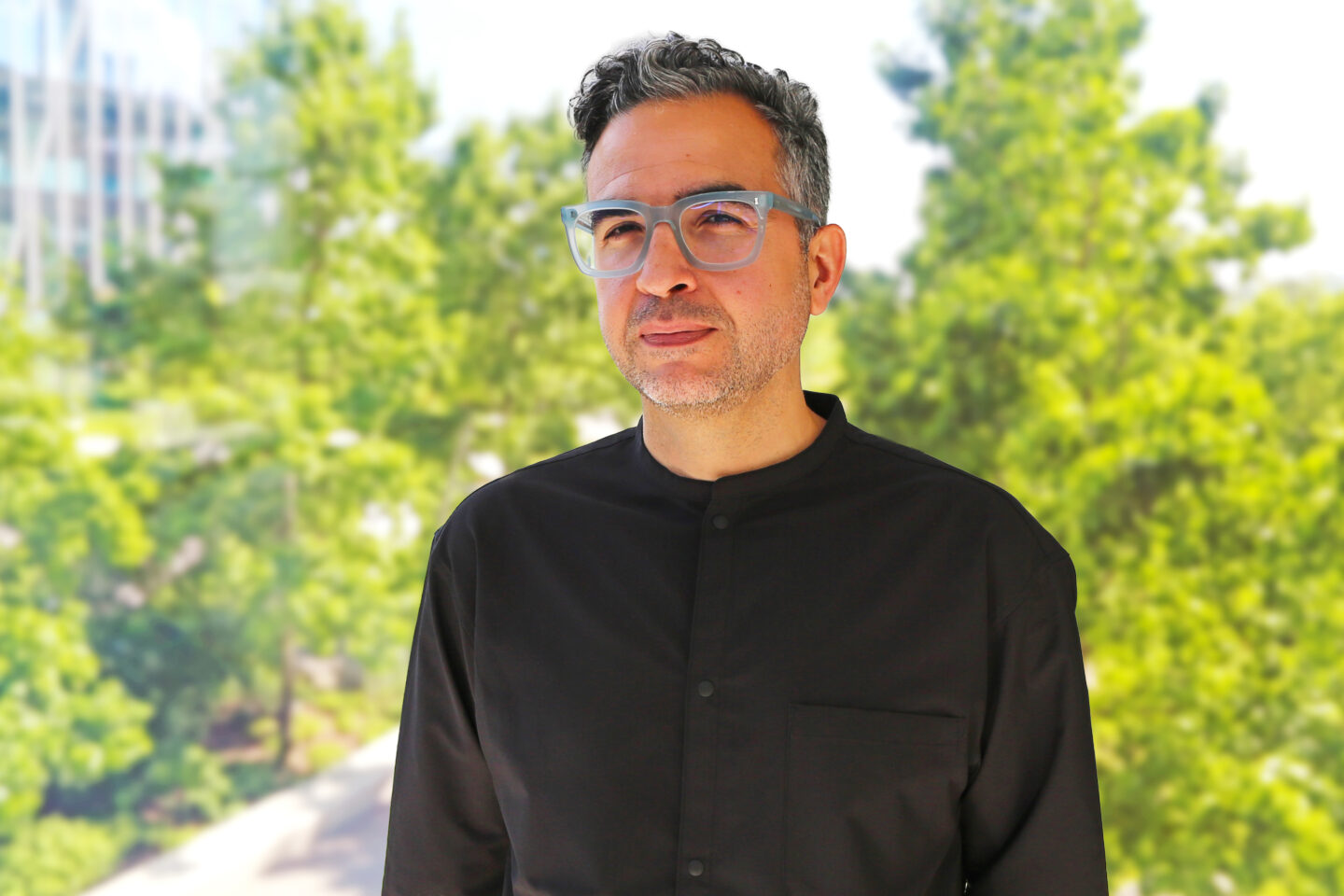
By Grace Stanley
This summer, Cornell Tech welcomed the first-ever cohort of the City University of New York (CUNY) Honors Connect program, which culminated in a showcase of student-led research on July 31. The program, a collaboration between Cornell Tech and CUNY’s Macaulay Honors College, provided an opportunity for top undergraduates at CUNY colleges across New York City to work alongside Cornell Tech faculty on cutting-edge research projects.
Throughout the summer, students tackled real-world challenges across a wide range of disciplines. Their work spanned artificial intelligence, robotics, health care innovation, urban agriculture, human-computer interaction, accessibility, and intellectual property law. Whether it was designing assistive robots for emergency rooms, using virtual reality to engage young people in urban farming, or creating interactive tools to support communication for people with speech disabilities, the students helped develop innovative new technologies with direct social impact.
“The research presentations by Macaulay Honors College undergraduate students on work they conducted with Cornell Tech faculty this summer showcased why the insight of these students is critical to the vitality of our research programs,” said Greg Morrisett, Jack and Rilla Neafsey Dean and Vice Provost of Cornell Tech. “The CUNY Honors Connect program not only creates a partnership to inspire these students by exposing them to new research opportunities, but allows us to join forces to develop tech solutions for a better world.”
CUNY Honors Connect was designed to support broader undergraduate participation in STEM innovation in the heart of New York City. The program offers Macaulay Honors students a fully funded, immersive summer research experience on the Cornell Tech campus, where they are mentored by faculty and graduate researchers. Students also participated in professional development workshops, networking events, and community-building activities that prepare them for future careers in academia, industry, and entrepreneurship.
“CUNY Honors Connect exemplifies what’s possible when talented, driven students are given the opportunity to engage deeply with cutting-edge research,” said Dr. Dara N. Byrne, Dean of Macaulay Honors College. “This partnership with Cornell Tech reflects our shared commitment to expanding access to transformative, faculty-mentored experiences that prepare students to lead in the innovation economy. Together, as two of New York’s leading institutions, we’re investing in the next generation of changemakers who will shape the future of the city and beyond.”
The summer program emphasized interdisciplinary collaboration and hands-on experimentation, with close relationships with faculty and graduate researchers. The result was not only a summer of learning, but also a portfolio of projects that reflect the creativity, curiosity and dedication of the inaugural CUNY Honors Connect cohort.
Research Highlights From the 2025 Cohort
Assistive AI and Machine Learning for Health Care
Student: Areeba Ali ’28 (Macaulay at City College)
The student in assistant professor Angelique Taylor’s lab developed robotic crash carts to support emergency room staff, improving supply management and communication during medical procedures. In addition, the team explored how reinforcement learning could help hospital teams allocate tasks among healthcare workers.
In-Context Learning for Large Language Models
Student: Selina Cheng ’27 (Macaulay at Hunter College)
Under the guidance of associate professor Yoav Artzi and graduate mentor Anne Wu, the student researcher explored how generative AI can adapt to real-time feedback, pushing the boundaries of reinforcement learning and human-AI interaction.
Public Interaction With Service Robots
Students: Sehr Abrar ’26 and Elaine Huan ’28 (Macaulay at City College)
With associate professor Wendy Ju, students investigated how service robots can be better integrated into public spaces in New York City, using field experiments and large language model AI tools to analyze human-robot interactions.
Expressive Speech and CAD for Accessibility and Fabrication
Students: Krista U. Singh ’27 (Macaulay at City College) and Tri Le Minh Dinh ’26 (Macaulay at Lehman College)
In assistant professor Thijs Roumen’s lab, students worked on enhancing accessibility through AI-generated speech and humor. They also worked on a digital design tool that helps users create physical objects made from different materials and machines within a single, unified system. In an additional project with assistant professor Rajalakshmi Nandakumar, students worked on developing wireless healthcare monitoring sensors.
Urban Agriculture and Virtual Reality
Student: Samson Wu ’27 (Macaulay at City College)
Led by associate professor Tapan Parikh, the student researcher helped use virtual reality and digital storytelling to engage youth from marginalized communities in urban farming, blending technology with environmental education.
Intellectual Property and AI
Students: Hannah A. Mejia ’28 (Macaulay at City College) and Brianna Hawkins ’26 (Macaulay at Brooklyn College)
Under professor Matthew D’Amore, students examined how emerging AI technologies intersect with legal frameworks, contributing to new course materials on intellectual property law.
Wearable Ultrasound for Emboli Detection
Student: Emirosman Murtazayev ’27 (Macaulay at Baruch College)
In assistant professor Mohamed Abdelfattah’s lab, the student researcher helped prototype a wearable device capable of detecting emboli — blockages caused by blood clots or other particles that can obstruct blood flow to the brain — in real time using custom-designed electronics and machine learning.
Grace Stanley is the staff writer-editor for Cornell Tech.





